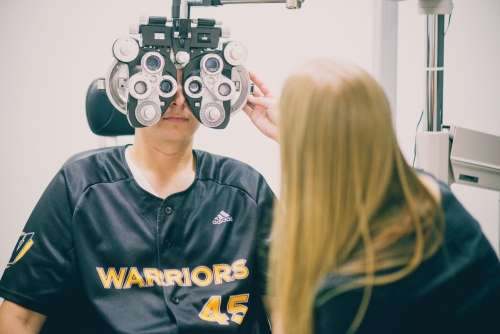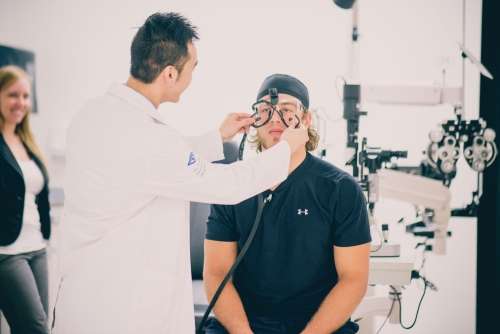Optometrist helps get athletes' eyes in shape

Whether shooting pucks or catching fly balls, athletes work hard to be at the top of their game and research shows that vision training can help improve athletes performance in sports.
Dr. Kristine Dalton, a professor in the School of Optometry & Vision Science in the Faculty of Science, investigates the role vision plays in the performance of athletes at all levels of competition.
"Vision provides athletes with most of the information needed to play sports so it's surprising that many neglect training and caring for their eyes," said Professor Dalton. "Studies suggest as many as 25 per cent of athletes at all levels of competition have never had an eye exam and that at least 30 per cent of all athletes need some form of vision correction."
As a result of her research, Dalton has established the University of Waterloo Sports Vision Clinic, where she works with athletes of all types and ages. The clinic is among the first Sports Vision clinics in Canada. Uniquely housed in a university setting, the clinic allows for dynamic synergy between research and clinical practice.
This relatively new area of clinical research will develop and establish standardized tests to measure sport-specific vision function and visual-motor coordination, laying the foundation for future work in this area.
The new Sports Vision Clinic focuses on customized, sport-specific assessment and training of athletes' vision. This can involve prescribing glasses or contact lenses exclusively for use while playing sport or training hand-eye coordination, reaction times and eye movement control to improve athletic performance.
The clinic's specialized equipment replicates the visual demands athletes experience when playing their sports. For example, during a training session, athletes may be asked to focus on moving targets at various distances and react with quick, coordinated responses.
"Improving vision should be just another way we can help athletes of all levels become better at the sport of their choice," said Dalton. "The fact that there could be implications beyond sports performance is what makes this all the more exciting."
Dalton is also trying to understand how sports-related concussions affect the visual system. This work will help physicians, coaches, and parents make better decisions about when athletes are ready to go back on the field and could improve rehabilitation services for athletes and other individuals with concussion and traumatic brain injury.

















